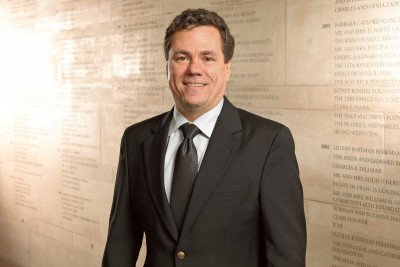
Scott W. Lowe has joined Memorial Sloan Kettering Cancer Center as a member of the Cancer Biology and Genetics Program in the Sloan Kettering Institute and Chair of the Geoffrey Beene Cancer Research Center. He comes to Memorial Sloan Kettering from Cold Spring Harbor Laboratory, where he was Deputy Director of the Cancer Center.
Dr. Lowe studies the genes and processes whose alterations cause and maintain cancer. Historically much of his work has focused on the tumor suppressor gene p53, which is mutated in about half of all cancers. His work has shown how changes in p53 can lead to the development of tumors and how the disruption of p53 can affect a tumor’s response to therapy, leading to drug resistance. More recently, Dr. Lowe has developed strategies for identifying many new tumor suppressor genes, as well as genes whose continued activity is required for cancer progression and whose inhibition leads to cancer regression.
His research also has centered on the development of mouse models for understanding how cancer progresses and responds to therapy. Some of these models allow researchers to make sense of apoptosis (programmed cell death) and senescence (biological aging) so that these processes can be restored to cancer cells, thereby allowing traditional chemotherapy drugs to destroy them. In addition, Dr. Lowe has used a technique called RNA interference to more closely regulate the expression of genes in mice, making genetic alterations more precise and specific. This method also enables Dr. Lowe to search for therapeutic targets for new cancer drugs or drug combinations.
“Scott is a world leader in efforts to understand the cellular mechanisms that suppress tumor formation and control responses to chemotherapeutic drugs,” according to Thomas J. Kelly, Director of Sloan Kettering Institute. “He is a wonderful addition to SKI.”
Dr. Lowe, a Howard Hughes Medical Institute investigator, received his PhD degree in biology from the Massachusetts Institute of Technology. In 2005, he won the Center’s Paul A. Marks Prize for Cancer Research. He has also received awards from the American Association for Cancer Research and the Association for International Cancer Research. He is the incumbent of the Geoffrey Beene Chair in Cancer Biology.

